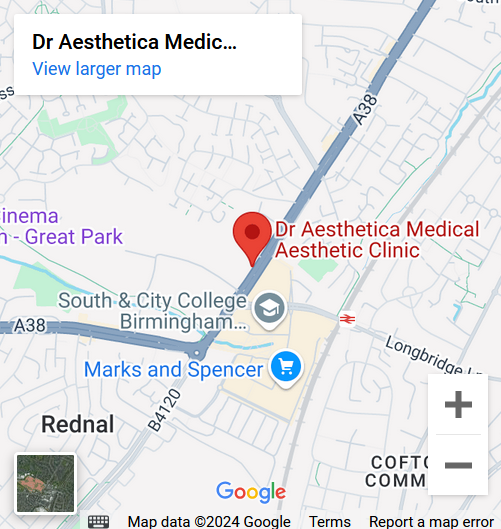Tear trough fillers have gained significant popularity as a solution for individuals seeking to rejuvenate the under-eye area, effectively addressing issues such as hollows and dark circles.
This non-surgical treatment predominantly utilises hyaluronic acid and offers rapid and effective results with minimal downtime.
As with any cosmetic procedure, there may arise a situation where the filler requires dissolution.
This article examines the benefits of tear trough fillers, identifies signs indicating the need for correction, and discusses alternative treatments, ensuring that individuals are well-informed about their options.
Key Takeaways:
What is Tear Trough Filler?

Tear trough filler is a cosmetic procedure specifically designed to address common concerns associated with under-eye hollows, dark circles, and signs of fatigue in the delicate area beneath the eyes.
This non-surgical option effectively employs hyaluronic acid-based dermal fillers to restore volume and smooth the skin, resulting in a more youthful appearance.
Practitioners emphasise enhancing skin hydration and quality while ensuring a natural look, which contributes to its popularity among individuals seeking rejuvenation without resorting to invasive surgical interventions.
A thorough understanding of the nuances of this treatment is essential for making informed decisions regarding aesthetic enhancements.
Overview of the Treatment
The tear trough filler treatment is a specialised cosmetic procedure that employs hyaluronic acid to enhance the under-eye area, effectively addressing prevalent concerns such as hollows and dark circles.
This minimally invasive technique involves a precise injection process, enabling the practitioner to target specific areas that require enhancement while maintaining a natural appearance. The types of fillers used can vary, but they are typically selected for their ability to integrate seamlessly with the skin, providing both volume and hydration.
Patients can anticipate immediate improvements in the appearance of their under-eye region, resulting in a more youthful and refreshed look. Prioritising safety is of utmost importance; therefore, it is essential for individuals to select experienced practitioners who adhere to stringent protocols and possess a comprehensive understanding of facial anatomy, thereby ensuring optimal results with minimal risks.
Benefits of Tear Trough Filler
Tear trough filler treatments provide a range of benefits that significantly enhance the appearance of the under-eye area, effectively reducing dark circles, fine lines, and hollows while promoting a refreshed and youthful look.
Patients frequently value the minimal downtime associated with these non-surgical options, facilitating a swift recovery period that aligns well with their busy schedules.
With results that can endure for several months, tear trough fillers represent an attractive alternative for individuals seeking effective rejuvenation without the need for invasive surgical procedures.
Recognising these advantages enables potential clients to make informed decisions regarding their aesthetic treatments.
Improving Under-Eye Appearance

One of the primary benefits of tear trough filler treatments is their ability to significantly enhance the appearance of the under-eye area by effectively addressing dark circles and hollows.
Plus merely filling in these hollows, these fillers restore lost volume that often accompanies the ageing process, resulting in a smoother skin texture and a more rejuvenated appearance. Patients frequently observe not only a reduction in shadowing but also a noticeable lift that enhances overall facial symmetry.
By revitalising the under-eye region, individuals can achieve a fuller, brighter aesthetic that conveys youthfulness. This treatment can produce a remarkable difference, providing a refreshed appearance that can enhance confidence and foster a more vibrant and approachable demeanour.
Minimal Downtime and Long-Lasting Results
Tear trough filler treatments are highly regarded not only for their efficacy but also for their minimal downtime, positioning them as an ideal non-surgical solution for individuals with demanding schedules.
Patients value the swift return to their daily activities, often observing immediate results that can last from six months to a year, influenced by individual characteristics and the specific products used.
In comparison to other aesthetic procedures, such as surgical eyelid lifts, tear trough fillers offer a more convenient alternative without the prolonged recovery periods typically associated with surgery.
Safety is of utmost importance, and providers emphasise the necessity of adhering to aftercare recommendations. These may include refraining from intense physical activity and excessive sun exposure for a brief period following the treatment.
Such measures are crucial for achieving optimal outcomes while minimising the risk of potential complications.
Signs That It's Time to Dissolve Your Tear Trough Filler
Recognising the indicators that it may be necessary to dissolve tear trough filler is essential for maintaining the desired aesthetic and ensuring patient safety.
Complications such as visible lumps under the eyes, blue discolouration resulting from the Tyndall effect, and chronic irritation warrant prompt attention.
Furthermore, any unevenness or asymmetry in the treatment can undermine the natural appearance intended by the procedure.
Awareness of these signs enables individuals to take timely action, thereby ensuring optimal results and satisfaction with their cosmetic enhancements.
Visible Lumps or Bumps

Visible lumps or bumps in the under-eye area may signify that the tear trough filler treatment was not performed as intended, potentially due to filler migration or improperly administered fillers.
These irregularities can result from several factors, including inadequate injection techniques, the use of substandard products, or the natural ageing process that affects skin elasticity. The presence of such imperfections not only diminishes aesthetic appeal but also raises concerns regarding overall patient safety, including the potential for infection or prolonged discomfort.
It is essential for individuals experiencing these issues to consult a qualified practitioner for a comprehensive assessment of the situation. Options for addressing these complications typically involve filler dissolving procedures, which facilitate the safe breakdown of unwanted substances, thereby restoring the natural contours of the under-eye area and alleviating any associated discomfort.
Unevenness or Asymmetry
Experiencing minor asymmetry or unevenness in the under-eye area after a tear trough filler treatment may lead to dissatisfaction and could indicate the necessity for corrective measures.
Such unevenness can diminish the overall aesthetic appeal that many individuals seek through these cosmetic enhancements. Various factors contribute to these discrepancies, including anatomical differences, the technique employed during the procedure, and the natural ageing processes that may affect skin elasticity.
It is essential for individuals undergoing these treatments to understand that asymmetry can occur, sometimes unpredictably. Scheduling follow-up consultations with a qualified practitioner enables a professional evaluation of the results and allows for potential adjustments to be made.
By taking this step, individuals can work towards restoring harmony and achieving the refined, balanced appearance that was initially intended.
Discoloration or Darkening of the Under-Eye Area
Discolouration or darkening of the under-eye area, particularly following the administration of tear trough filler injections, can be a matter of concern and may indicate underlying issues such as the Tyndall effect or chronic irritation.
It is essential for individuals considering such cosmetic procedures to understand these potential causes, as they underscore the importance of the quality of the dermal fillers used. The use of low-grade or improperly administered products can significantly elevate the risk of adverse effects, including discolouration.
Therefore, individuals must prioritise patient safety by ensuring that these procedures are performed by qualified professionals using reputable products.
If any signs of discolouration manifest, it is imperative for the patient to seek a comprehensive evaluation to identify the underlying issue and to mitigate any potential complications.
How to Dissolve Tear Trough Filler

Dissolving tear trough filler may be a necessary procedure for individuals encountering complications or unsatisfactory results.
It is imperative that this procedure is conducted by a qualified practitioner using hyaluronic acid dissolving agents to ensure optimal outcomes.
Procedure and Recovery Process
The process for dissolving tear trough filler primarily involves the administration of hyaluronic acid-based dissolving agents, which effectively break down the existing filler material.
Upon the injection of the dissolving agent, the breakdown of the filler commences, typically occurring within a few minutes. Patients can generally expect minimal discomfort during the injection, which is often described as a slight pinch.
Recovery times may vary; however, many individuals are able to resume their daily activities almost immediately, experiencing some initial swelling that typically diminishes within a few days.
It is crucial for patients to schedule a follow-up appointment with their practitioner to assess the results and determine if any additional treatments are necessary. Adjustments may be needed based on individual satisfaction and the healing process.
Alternatives to Tear Trough Filler
Individuals seeking alternatives to tear trough filler have access to a range of aesthetic treatments and approaches to address under-eye concerns.
These include options such as laser therapy and skin resurfacing techniques, which are designed to improve skin quality and texture.
Other Treatments for Under-Eye Concerns
Several effective treatments for under-eye concerns are available, including advanced aesthetic options such as laser therapy and skin resurfacing, which can effectively address dark circles and enhance overall skin texture.
These alternatives not only give solutions to prevalent issues but also improve the skin's natural elasticity. For example, laser therapy stimulates collagen production, resulting in a smoother appearance, while chemical peels reveal fresher skin by exfoliating dead layers.
In contrast to tear trough fillers, which offer immediate volume enhancement but require ongoing maintenance, these non-filler treatments typically yield gradual, long-lasting results with minimal downtime.
Patients often report improved skin tone and reduced puffiness, enabling them to achieve a more youthful and rejuvenated appearance without the need for frequent injections.
Choosing the Right Provider for Tear Trough Filler
Selecting an appropriate provider for tear trough filler treatment is essential for achieving optimal results and ensuring patient safety.
The expertise of a qualified practitioner plays a significant role in the success of the procedure.
Factors to Consider for Safe and Effective Treatment
When considering tear trough filler treatments, it is essential to evaluate several factors to ensure both safety and efficacy, with a primary focus on patient safety and the practitioner's expertise.
An experienced practitioner is not only able to administer the treatment with precision but also to recognize any specific needs of the patient, facilitating the development of a personalised approach. The quality of the filler products utilised is of paramount importance, as high-quality materials can significantly reduce risks and enhance treatment outcomes.
A comprehensive consultation process is crucial, providing a platform for open communication where patients can articulate their concerns and expectations. This dialogue fosters trust and ensures alignment between the practitioner and the patient regarding the desired results, ultimately leading to a more satisfactory treatment experience.



